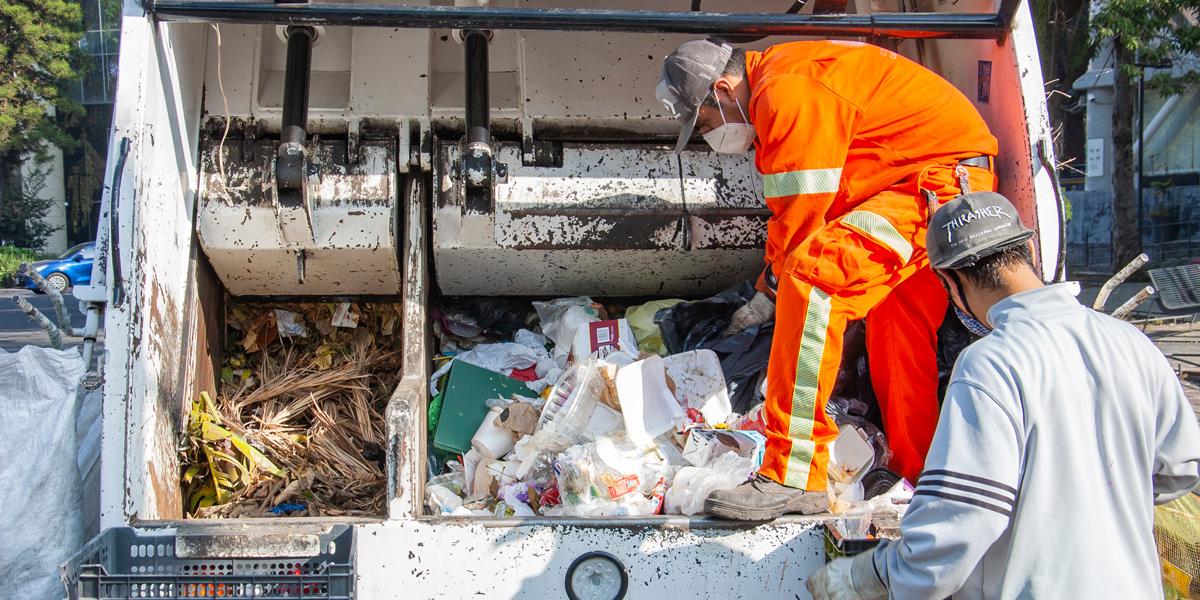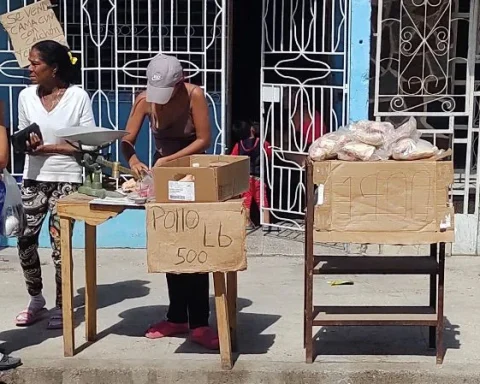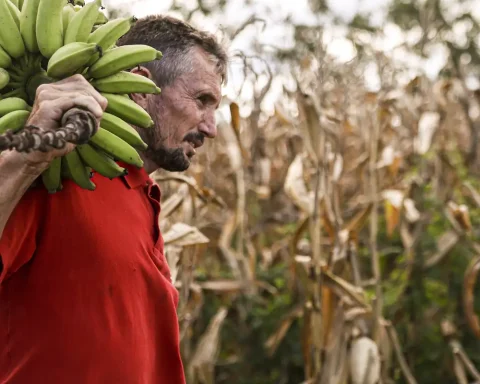From 2001 to date, improper garbage management It has cost the country around 1.5 billion pesos, stated environmental consultant Carlos Álvarez Flores.
In an interview, he explained that, according to the results of the Economic and Ecological Accounts of Mexico (CEEM) 2023, from the National Institute of Statistics and Geography (Inegi), the cost of depletion and environmental degradation due to urban solid waste was 130,084.9 million of current pesos and represented 0.4% of the total Gross Domestic Product of the national economy. In 2001 that figure was around 20,000 million pesos.
The specialist commented that, on a national scale, there are around 1,200 million cubic meters of subsoil and around 500 bodies of water contaminated with leachate generated by poorly constructed and poorly managed open-air dumps.
He detailed that polluted water bodies In question are only those affected in the last 23 years and include superficial aquifers such as streams, rivers, lakes and lagoons, even fractions of the sea, such as in Acapulco.
Likewise, he said that, if the inorganic garbage that is confined in landfills were used, there would be profits of 10,000 million pesos per year.
According to the analyst, if it were done electricity with garbagethe equivalent of 15% of what the Federal Electricity Commission (CFE) currently produces would be generated.
Furthermore, it could generate seven million tons of compost per yearideal for use in agricultural soils, which would be valuable, especially if one takes into account that Mexico has 18 million eroded soils.
Proposes creating 500 comprehensive garbage management centers
To make this possible, according to the expert, what must be done is take away from municipalities and states the management of all waste and that the federal government grant concessions to the private sector to invest in the construction of at least 500 comprehensive centers for the management of both organic and inorganic waste.
Each center would imply an investment of at least 1,000 million pesos.
Carlos Álvarez Flores came to this conclusion after reviewing the current situation in the garbage dumps that operate throughout the national territory.
According to the specialist, currently, 2,200 open-air dumps operate nationwidebut there are another 5,000 sites that functioned as such, but they covered them with dirt and they stayed that way.
The delicate thing about the matter is that every year, In Mexico, around 45 million tons of garbage are generated of which half is inorganic and the other half organic.
The inorganic fraction has an important value, as long as it is given the necessary treatment.
Of the total municipal garbage dumps in the country, only 50, which are concessioned to private companiescarry out some type of waste processing derived from the separation of garbage from homes. However, none of them meet landfill specifications.
The problem is that the model or the way garbage is disposed of in the country It is incorrect and highly polluting because, by not separating, inorganic objects that could be recycled are buried, but by not doing so they take a long time to decompose in the places where they are deposited.
In the case of organic waste, which is also buried (instead of being used in compost) it generates a series of liquids that contaminate the groundwater and soils in general.
electronic waste
There is dumpsites such as El Bordo Poniente and Bordo de Xochiacafrom Mexico City, where there are 470 million tons that generate highly toxic waste that is contaminating the soil.
There are cases such as the Tinajitas dumpsite, in the city of Celaya, Guanajuato, which is located 150 meters from the Laja River, and the El Ixtete dumpsite, in Tepic, Nayarit, which is on a mountain and the leachate falls into the Mololoa River. In both cases they severely contaminate surrounding water bodies.
In the analyst’s opinion, the biggest problem is economicbecause to build a sanitary landfill as established by Official Mexican Standard 083 Semarnat 2003, it is required to invest 1,000 pesos per ton.
The cleaning service concessionaire companies charge around 200 pesos per ton handled.
He recalled that for around 20 years the General Law for the Prevention and Management of Waste It requires the separation of waste for its use, but none of that has been done, because the federal and state governments are not interested.
In 2023, at least 194 landfill fires occurred
On the other hand, he reported that until last week there had been 194 fires in municipal dumps.
The state where they had occurred the most is Guanajuato, with 21. They were followed by Tlaxcala, Coahuila and Baja California Sur with 17 each, and Chihuahua, with 14. Many of them take more than a week to become extinct.
This happens because the federal, state and municipal governments do not even have the resources I don’t even want to avoid them or contain them.
Those types of fires generate a large amount of pollutants and they continue to occur in the country, despite the fact that Mexico is part of the Stockholm Convention, which requires fires to be avoided as much as possible in garbage dumps, forests and in industry, because they generate a series of dioxins and furans, which are among the most toxic substances generated on the planet.
They have left the responsibility to the municipalities
According to the analyst, Mexico is 60 years behind compared to Asian and European countries that have better practices for solid waste management.
He explained that, in the country, garbage collection and management It has been left to the municipalities, despite their institutional weakness and lack of budget.
In accordance with the current legal framework, the federation is responsible for the handling and management of hazardous waste, the state governments are responsible for special handling waste, such as tires, batteries, excreta and construction waste, among others, as well as sludge from water treatment plants, while municipal solid waste goes to municipalities.
In the opinion of the specialist, that division has been a failuresince, in practice, the federation does not care what the municipalities do and neither do the governors, even though the federation is responsible for everything that happens in the country’s territory regarding waste.
“National waste policy is a federal matter.”
He said that the state environmental prosecutors are responsible for the abnormalities that occur in the federal entities, regarding the management of urban waste, special management waste, as well as hazardous waste.
In his opinion, the rule that regulates Waste management in the country is obsolete because it includes the construction of land confinements that do not meet the physical characteristics to contain leachate and prevent it from contaminating the subsoil.
He said that what should be done with organic waste is compost, which is obtained in composting plants that are not available today.
He believes that in Mexico they require, at least 250 regional centers for composting of organic waste, where garbage is processed, which, from homes, must have a differentiated disposal process.

















